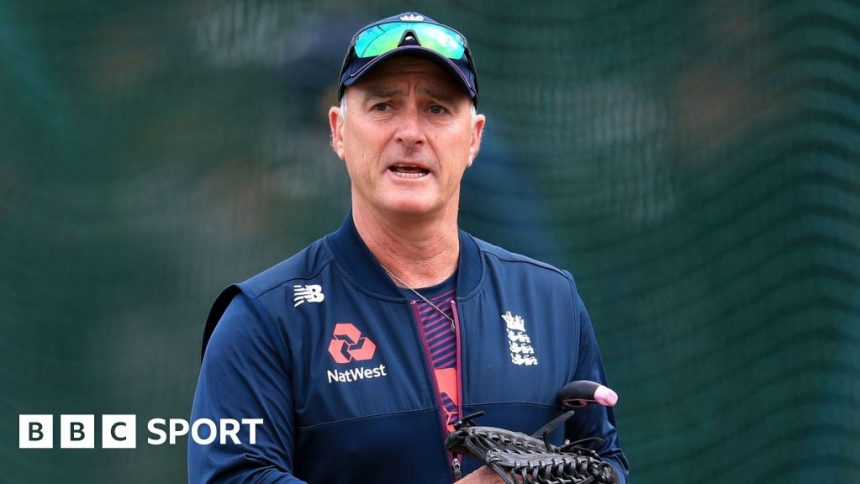Former England batter Thorpe took his own life, family says

Between his playing and coaching careers, Graham Thorpe spent nearly 30 years as a key part of the England set-up
-
Published
Former England and Surrey batter Graham Thorpe took his own life, his family said.
Thorpe, who played 100 Tests and 82 one-day internationals for England, died last week aged 55.
In an interview with the Times, external, Thorpe’s wife Amanda said he had been suffering from depression and anxiety over recent years.
“Despite having a wife and two daughters whom he loved and who loved him, he did not get better,” she said.
“He was so unwell in recent times and he really did believe that we would be better off without him and we are devastated that he acted on that and took his own life.
“For the past couple of years, Graham had been suffering from major depression and anxiety. This led him to make a serious attempt on his life in May 2022, which resulted in a prolonged stay in an intensive care unit.
“Despite glimpses of hope and of the old Graham, he continued to suffer from depression and anxiety, which at times got very severe. We supported him as a family and he tried many, many treatments but unfortunately none of them really seemed to work.”
-
-
Published6 days ago
-
-
-
Published7 days ago
-
Thorpe will be remembered as one of the finest batters of his generation. He hit 2,380 runs in 82 one-day internationals, and 6,744 runs in 100 Tests at an average of 44.66, with 16 hundreds.
After retiring in 2005, he moved into coaching, first in Australia and then back home with Surrey and England.
The family say they are now considering launching a foundation in his name.
They want to raise greater awareness of the illness Thorpe had.
“We are not ashamed of talking about it,” said his eldest daughter Kitty, 22.
“There is nothing to hide and it is not a stigma. We were trying to help him get better before and trying to protect him, which is why we said nothing.
“This is the time now to share the news, however horrible it is. We’ve wanted to be able to talk and share and we’d now like to raise awareness, too.”
If you’re affected by any of the issues in this article you can find details of organisations who can help via the BBC Action Line.




